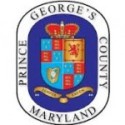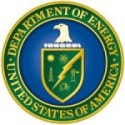
Performance Enhancement and Management
Improving performance begins with knowing where you are today (e.g., a baseline) and where you want to be in the future (e.g., end-state) so that the degree of enhancement or impact of change can be fully understood.
Performance enhancement also requires that factors be identified which are meaningful to stakeholders, representative of performance, and measurable.
An organization that is regularly collecting meaningful data on its own performance is able to make “course corrections” and other improvements on a more frequent basis, and this leads to truly effective management.
The concept is to articulate the desirable level of performance in a meaningful way and then to develop measurable performance metrics to help you meet this goal."Those who embrace performance measurement likely believe in the common statement: “You can’t manage what you don’t measure.”
As a simple example, suppose your goal for your organization is to achieve an overall customer satisfaction rating of 90% within 2 years, when your customer satisfaction rating today is only 75%. Some metrics that support this might look like:
Sample Performance Metrics
- the IT Dept. will be 10% more responsive on help desk tickets
- the Permits Dept. will improve accuracy of applications processed by 15% (measured by the number of applications being reworked due to errors)
- the Procurement Dept. will reduce processing time of purchase orders by 20%
- the Utilities Dept. will increase the reliability of its water supply by 5%
- the Facilities Dept. will increase periodic maintenance by 10%, and as a result, will reduce corrective maintenance costs by 15%
Performance goals and metrics should “cascade” down into an organization, to departments, to functional groups, to small teams, and even to individual positions; however, they must remain aligned with the overall organizational mission. Once metrics are developed, measurement of performance against these metrics should commence. The leadership can then make evidence-based and informed decisions on which improvement opportunities to dedicate resources.
Common Myths about Performance Management
“This will take too much time, energy, and money.” There is no question that it will take more time, energy, and money, but the long term benefit in improved stakeholder satisfaction, greater productivity, increased efficiencies, and/or cost reductions will far outweigh the investment. Furthermore, it does not have to be overly complex - by keeping the metrics focused and simple, the time, energy, and costs to implement can be mitigated substantially.
“Given the kind of work we do, it’s not possible to develop performance metrics in my organization.” – Not true – performance metrics can be designed for virtually any organization or function – some may take a little more creativity than others and some may be more qualitative than quantitative – the key is making them meaningful for your organization or function.
“Then, others will know what’s wrong with my organization.” – Yes, they will … but, they will also see that you are taking responsibility for fixing what’s broken and initiating methodical steps toward drastically improving it.
“My organization is already doing as well as it can, given our resource constraints.”– First, how do you know without hard data? Second, every organization can improve its performance and improvement should be continuous, not an end-state.
Tactics for Analyzing and Improving
In addition to metrics design and performance measurement, PME specializes in a variety of techniques to help organizations enhance their performance to include:
- Customer Opinion Surveys
- Employee Opinion Surveys
- Group Brainstorming / Facilitation of Problem Resolution Teams
- Statistics and Trends Analysis
- Business Process Reengineering / Six Sigma
- Dashboard Reporting (making performance results transparent)
- Technology Improvement / Automation
- Enterprise-Wide System Integration (such as ERP, etc.)
We design performance-based metrics as part of procurement efforts also. Often our clients will want to hold their contractors accountable to results-oriented performance standards, so that they can measure and monitor their performance during the period of performance. Related to this, PME has developed Quality Assurance Surveillance Plans and helped organizations collect the data necessary to monitor its vendors.














